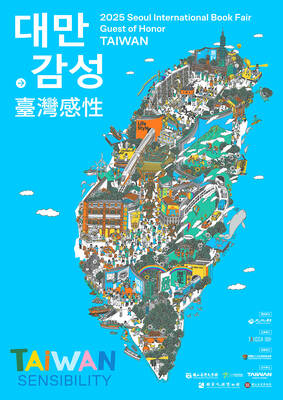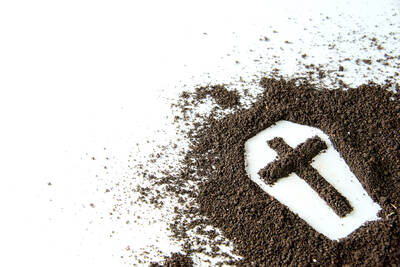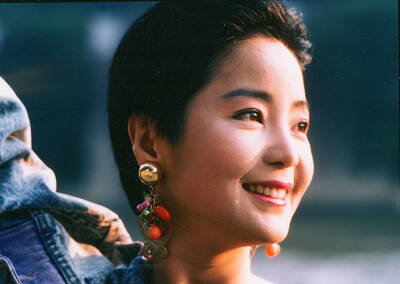對話 Dialogue
清清:華華,每年的4月22日是「世界地球日」,我知道你每年都響應,今年你打算怎麼做?
Qīngqing: Huáhua, měinián de sì yuè èrshí-èr rì shì Shìjiè Dìqiúrì, wǒ zhīdào nǐ měinián dōu xiǎngyìng, jīnnián nǐ dǎsuàn zěnme zuò?

PHOTO: SHUTTERSTOCK / 照片:SHUTTERSTOCK
華華:今年的主題是「多一塑不如少一塑」,我打算在那天盡量不要用塑膠製品,希望能減少對地球的傷害。
Huáhua: Jīnnián de zhǔtí shì Duō yí sù bùrú shǎo yí sù, wǒ dǎsuàn zài nèitiān jìnliàng búyào yòng sùjiāo zhìpǐn, xīwàng néng jiǎnshǎo duì dìqiú de shānghài.
清清:不要用塑膠製品?太難了吧!現代生活裡,哪裡都是塑膠,怎麼可能少了它的存在?
Qīngqing: Búyào yòng sùjiāo zhìpǐn? Tài nánle ba! Xiàndài shēnghuó lǐ, nǎlǐ dōu shì sùjiāo, zěnme kěnéng shǎole tā de cúnzài?
華華:話雖如此,但我們還是可以盡量少用一點啊!比如說自備環保購物袋、拒絕過多的塑膠包裝和用塑膠做的免洗餐具等等,都能為環保盡一份心力。
Huáhua: Huà suī rúcǐ, dàn wǒmen háishì kěyǐ jìnliàng shǎo yòng yìdiǎn a! Bǐrúshuō zìbèi huánbǎo gòuwùdài, jùjué guòduō de sùjiāo bāozhuāng hé yòng sùjiāo zuòde miǎnxǐ cānjù děngděng, dōu néng wèi huánbǎo jìn yí fèn xīnlì.
清清:除了減塑以外,減碳也很重要,兩個一起做會更好!
Qīngqing: Chúle jiǎnsù yǐwài, jiǎntàn yě hěn zhòngyào, liǎngge yìqǐ zuò huì gèng hǎo!
華華:沒錯,所以我都坐公車或捷運來上班,平常比較近的地方就騎腳踏車去。
Huáhua: Méicuò, suǒyǐ wǒ dōu zuò gōngchē huò jiéyùn lái shàngbān, píngcháng bǐjiào jìn de dìfāng jiù qí jiǎotàchē qù.
清清:不只是這樣,像我們現在發票都用載具,工作常用電子文件,大量減少紙張的使用,都對減碳很有幫助。
Qīngqing: Bù zhǐshì zhèyàng, xiàng wǒmen xiànzài fāpiào dōu yòng zàijù, gōngzuò cháng yòng diànzǐ wénjiàn, dàliàng jiǎnshǎo zhǐzhāng de shǐyòng, dōu duì jiǎntàn hěn yǒu bāngzhù.
華華:是的,不要小看從小處做起,累積起來就是極大的力量呢!
Huáhua: Shìde, búyào xiǎokàn cóng xiǎochù zuòqǐ, lěijī qǐlai jiùshì jídà de lìliàng ne!
翻譯 Translation
Qingqing: Huahua, every April 22 is World Earth Day. I know you respond to it every year. What are your plans this year?
Huahua: The theme for this year is “Planet vs. Plastics.” I plan to minimize the use of plastic products on that day, hoping to reduce the harm to the Earth.
Qingqing: Not using plastic products? Isn’t that difficult? Plastic is everywhere in modern life; how is it possible to reduce its presence?
Huahua: That’s true, but we can still try to use less. For example, bringing our own eco-friendly shopping bags, refusing excessive plastic packaging and avoiding disposable utensils made of plastic. All of these efforts contribute to environmental protection.
Qingqing: In addition to reducing plastic, reducing carbon is also important. Doing both would be even better.
Huahua: Exactly, that’s why I take the bus or MRT to work, and for shorter distances, I ride a bike.
Qingqing: It’s not just that. For example, our invoices are now electronic, and we use digital documents for work, significantly reducing the use of paper. It’s very helpful for carbon reduction.
Huahua: Yes, don’t underestimate starting small; the cumulative effect can be a tremendous force!
生詞 Vocabulary
1. 塑膠 (sùjiāo) plastic
2. 製品 (zhìpǐn) product
3. 傷害 (shānghài) harm, damage
4. 自備 (zìbèi) bring your own
5. 購物袋 (gòuwùdài) shopping bag
6. 包裝 (bāozhuāng) packaging, wrap
7. 減碳 (jiǎntàn) carbon reduction
8. 載具 (zàijù) carrier
教材音檔 Audio Files
國立清華大學華語中心提供
By National Tsing Hua University Chinese Language Center:

The 2025 Seoul International Book Fair was held from June 18 to 22 at the COEX Convention & Exhibition Center in Seoul, South Korea. This year, participants from 17 countries attended, with over 530 publishing houses and related organizations taking part. For the first time, Taiwan participated in the book fair as the Guest of Honor, bringing together more than 85 publishers and presenting a curated selection of 550 titles. A delegation of 23 Taiwanese creatives traveled to Seoul to attend the event, including 13 literary authors, six illustrators, and four comic book artists, among which were a film director, an

In late 2024, the suicide of acclaimed Taiwanese author Chiung Yao at 86 sparked a societal debate. She expressed her desire to avoid the difficult aging process and sought to govern her own death rather than leave it to fate. Her statements propelled the issue of “euthanasia” back into the public arena, posing the question of whether Taiwan should legalize euthanasia to grant patients and the elderly the right to die with dignity. Euthanasia, the intentional ending of a life to relieve suffering, is legal for humans in countries like the Netherlands and Belgium but remains prohibited in Taiwan.

A: Wow, the 36th Golden Melody Awards ceremony is set for this weekend. B: I like all the nominees for Best Mandarin Album: Incomplete Rescue Manual by various artists, Outcomes by J.Sheon, Invisible Color by Terence Lam, The Dreamer by Khalil Fong, Haosheng Haochi by Trout Fresh and Ordeal by Pearls by Waa Wei. A: Despite struggling with serious illness, Fong managed to finish his last album before he died. B: With his hit Twenty Three, he is also nominated for Best Song, Lyricist and Composer, and will receive a Special Jury Award for his album. A: And

A: The Golden Melody Awards’ Lifetime Achievement Award will go to both musician Bruce Wong and late singer Jeff Ma. B: Some superstars also won this honor in the past, such as late singer Teresa Teng. A: Speaking of Teresa, have you heard that an unreleased Japanese song of hers was found recently? B: Really? Will the song be released? A: Yes, her track Love Song in the Night Fog is set to be released this month, marking the 30th anniversary of the legendary singer’s death. A: 本屆金曲獎特別貢獻獎頒給樂手翁孝良、已故歌手馬兆駿。 B: 以往有不少超級巨星,像是已故歌后鄧麗君也曾獲此殊榮唷。 A: 說到鄧麗君,你有聽說她生前未發布的日文歌曲被發現了嗎? B: 真的嗎?新歌會公開嗎? A: 這首歌《情歌最愛夜霧時》預計本月發布,正好紀念傳奇歌后去世30週年! (By Eddy